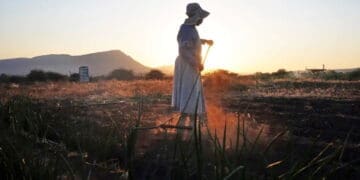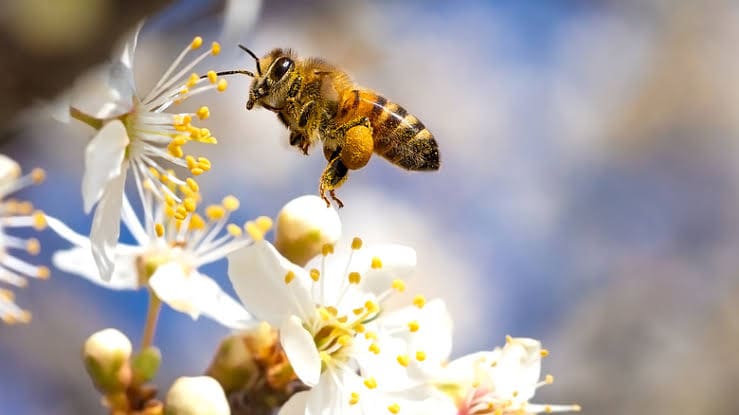As South Africa grapples with rising food insecurity, declining biodiversity and rural unemployment, a critical yet often overlooked solution lies in the hum of the beehive.
Bees pollinate over 50 crops in the country, including apples, avocados, canola, and sunflowers, according to the SA Bee Industry Organisation (SABIO).
Recently, the organisation awarded a beekeeper and smallholder farmer from Bronkhorstspruit, who runs Nutritious Picks Farm, with first place in the Novice Liquid Honey – Dark category at BEECON 2025.
“The competition was indeed tough with so many incredible entrants. I’m truly honoured to have won,” said Thembekile Mndawe.
Mndawe’s achievements reflect the potential of beekeeping as an accessible income-generating activity for women and youth in rural areas.
The conference, which was hosted by SABIO, also showcased emerging technologies, including mobile hives and AI-driven hive monitoring tools.
SABIO chairperson Tumi Mobu emphasised the need for training, investment and stronger public-private partnerships.
“We are ready to partner with government and private sector players to build a future where bees thrive—and so do farmers,” she said.
Agriculture Minister John Steenhuisen told the conference that beekeeping was a strategic national priority.
“Bees are not just contributors to our agricultural system, they are foundational to its very survival,” said Steenhuisen.
“Protecting bees is not just an environmental issue, it is a national food security imperative.”
Globally, over 75% of food crops rely on pollinators, and according to the Agricultural Research Council (ARC), bee-pollinated crops contribute billions to the economy annually.
Steenhuisen warned that a decline in bee populations would deepen hunger and economic inequality.
”Pollination shortfalls translate into lower incomes for smallholder farmers and higher prices for consumers,” he said.
Beyond food, bees play a critical role in ecosystem regeneration, enabling seed dispersal, soil health, and plant reproduction.
Yet, their populations are threatened by habitat loss, pesticides, climate change and invasive pests such as the varroa mite and capensis clone.
In response, the government has commissioned the ARC to conduct research on diseases, tightening pesticide regulations and promoting indigenous bee species.
It has also pledged to finalise a national beekeeping strategy.
“Beekeeping must now be at the intersection of agricultural policy, environmental stewardship and economic development,” Steenhuisen said.
“The time has come to bring beekeeping from the margins to the mainstream. Investing in beekeeping is not only about producing honey but also about producing futures.”































































